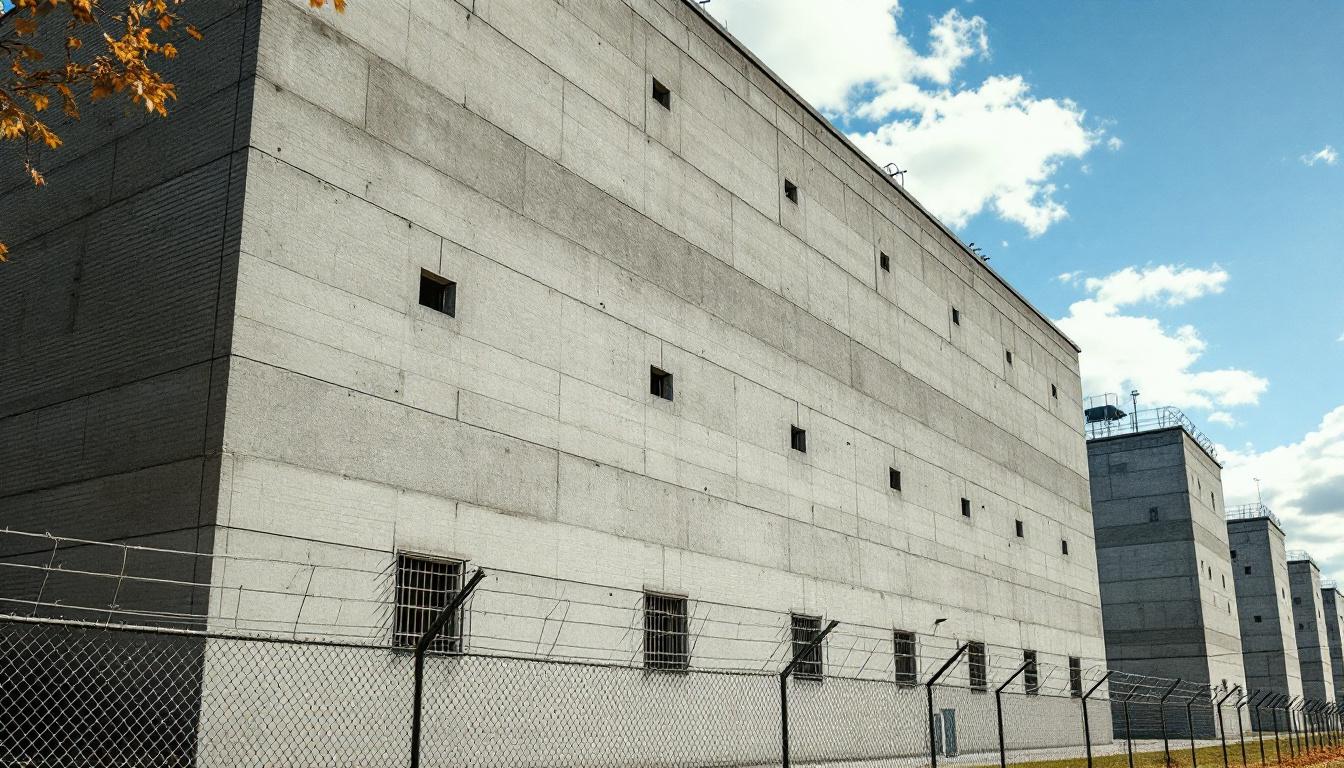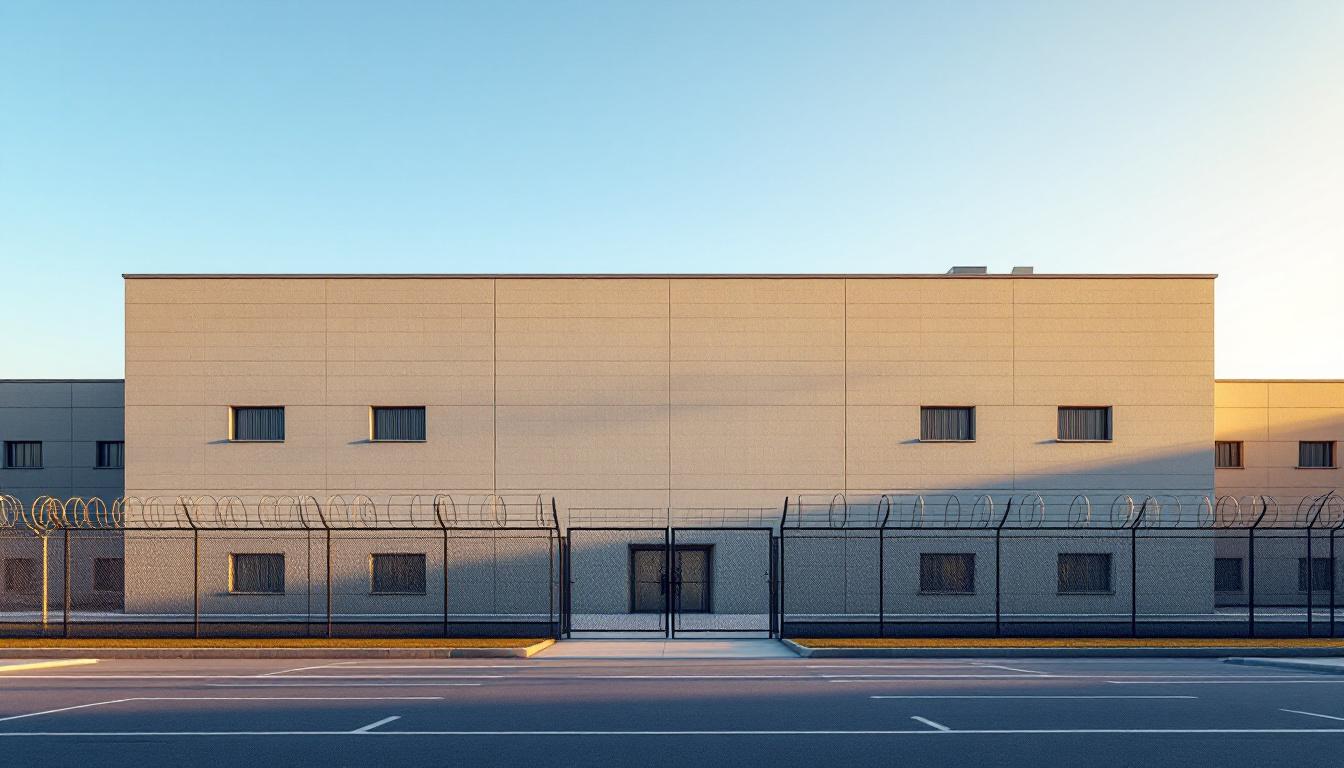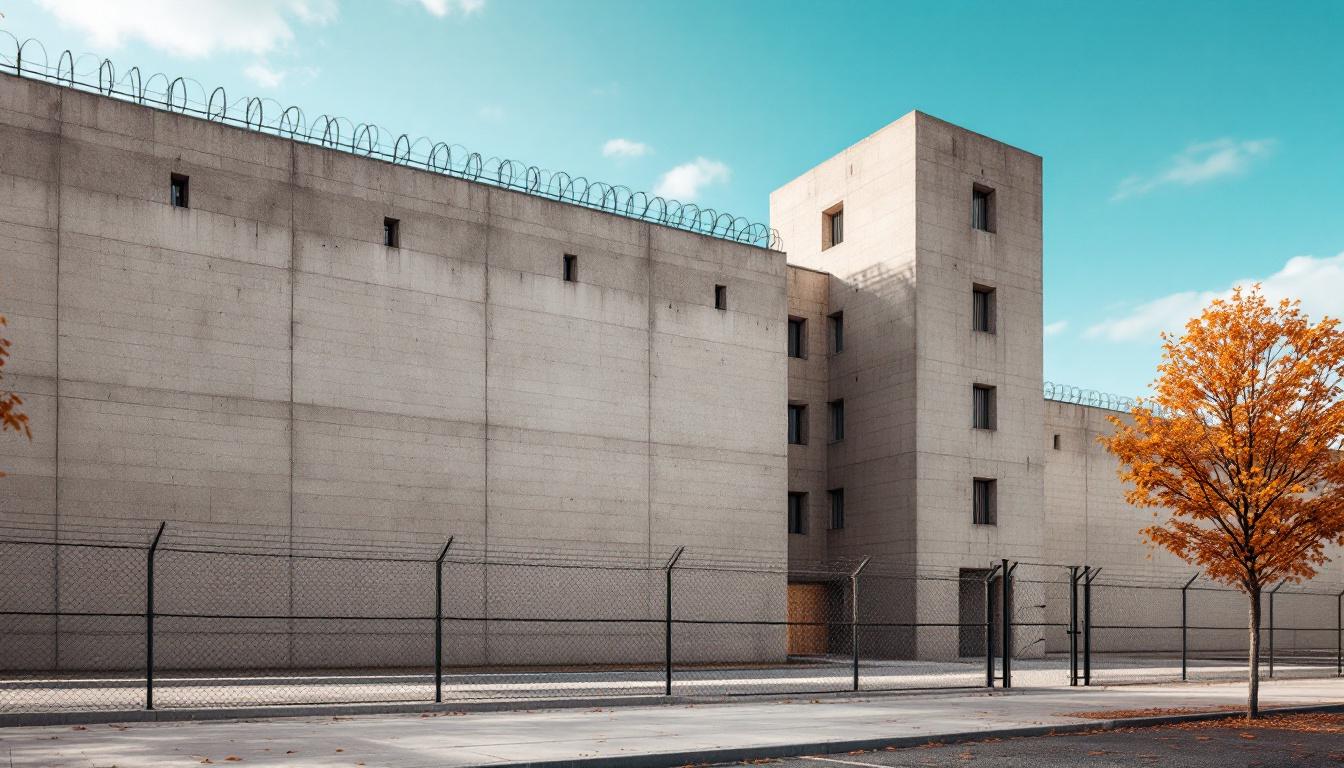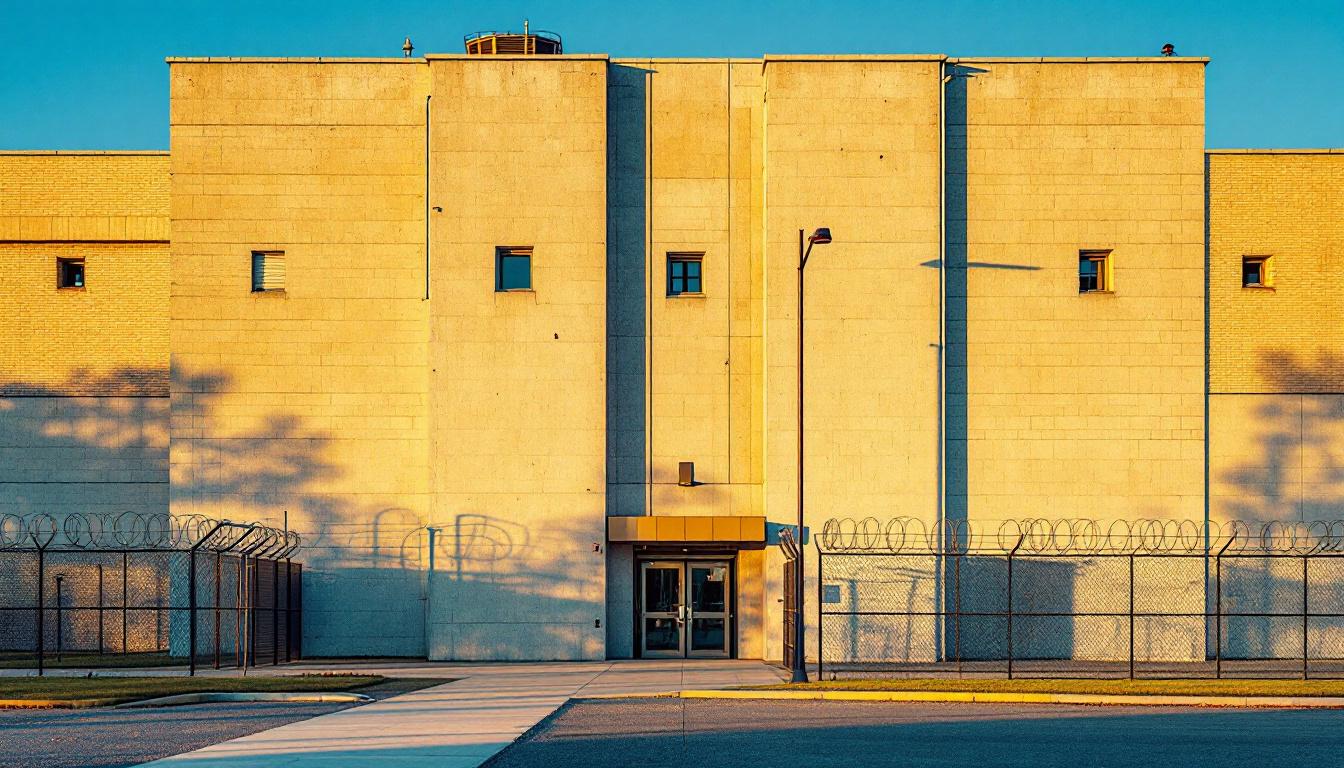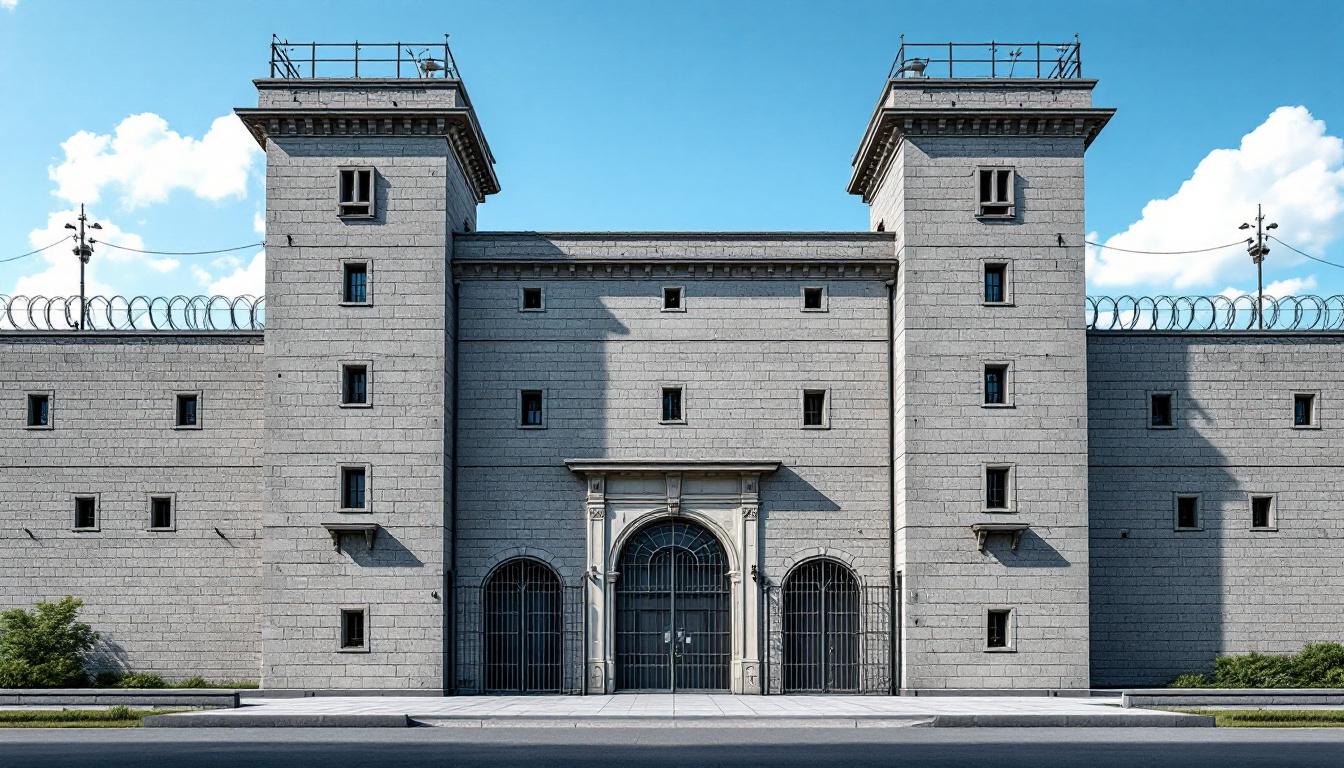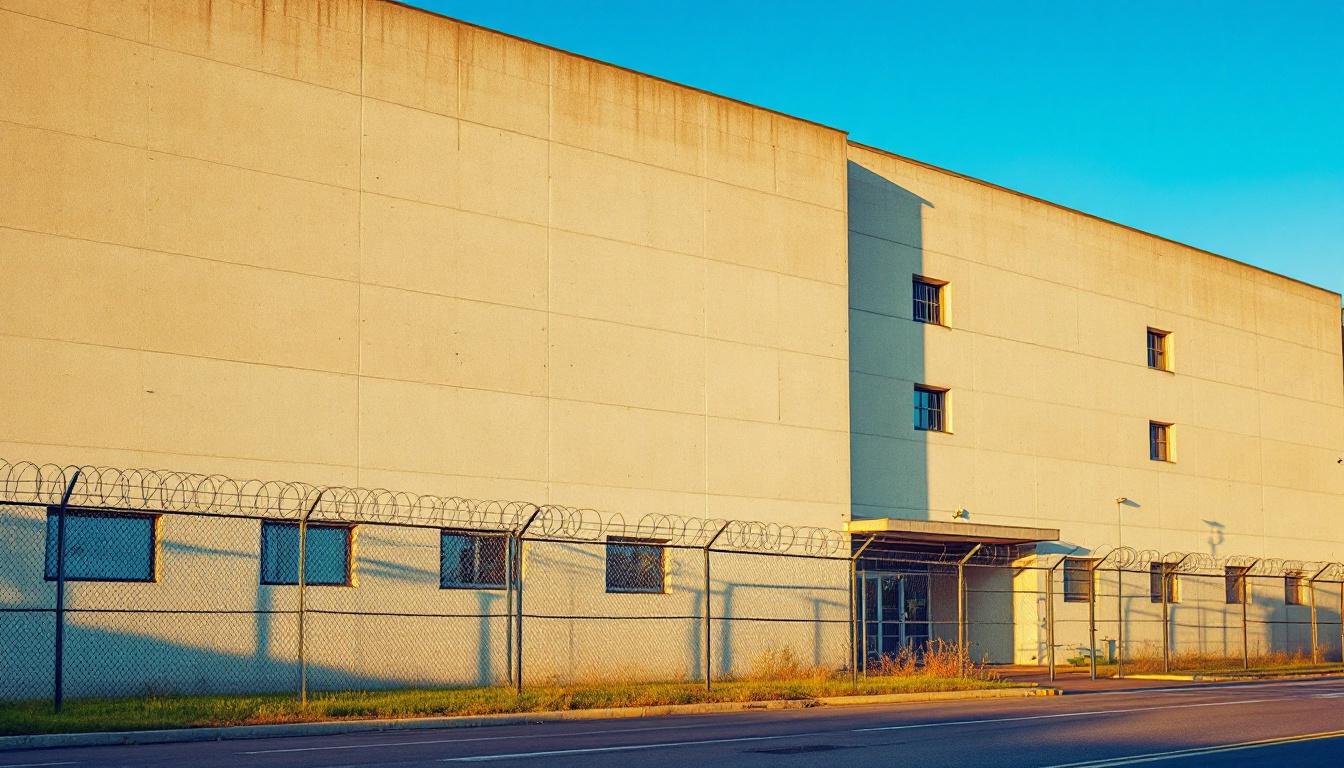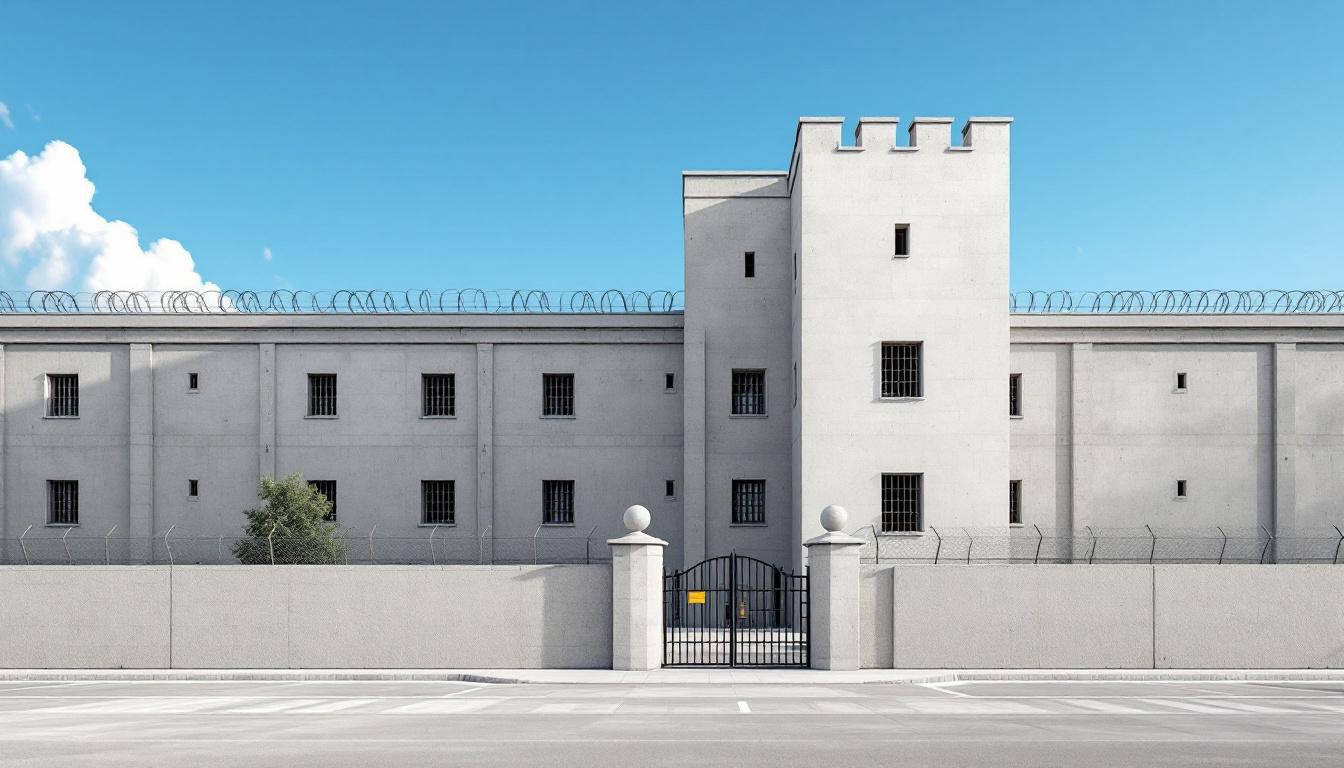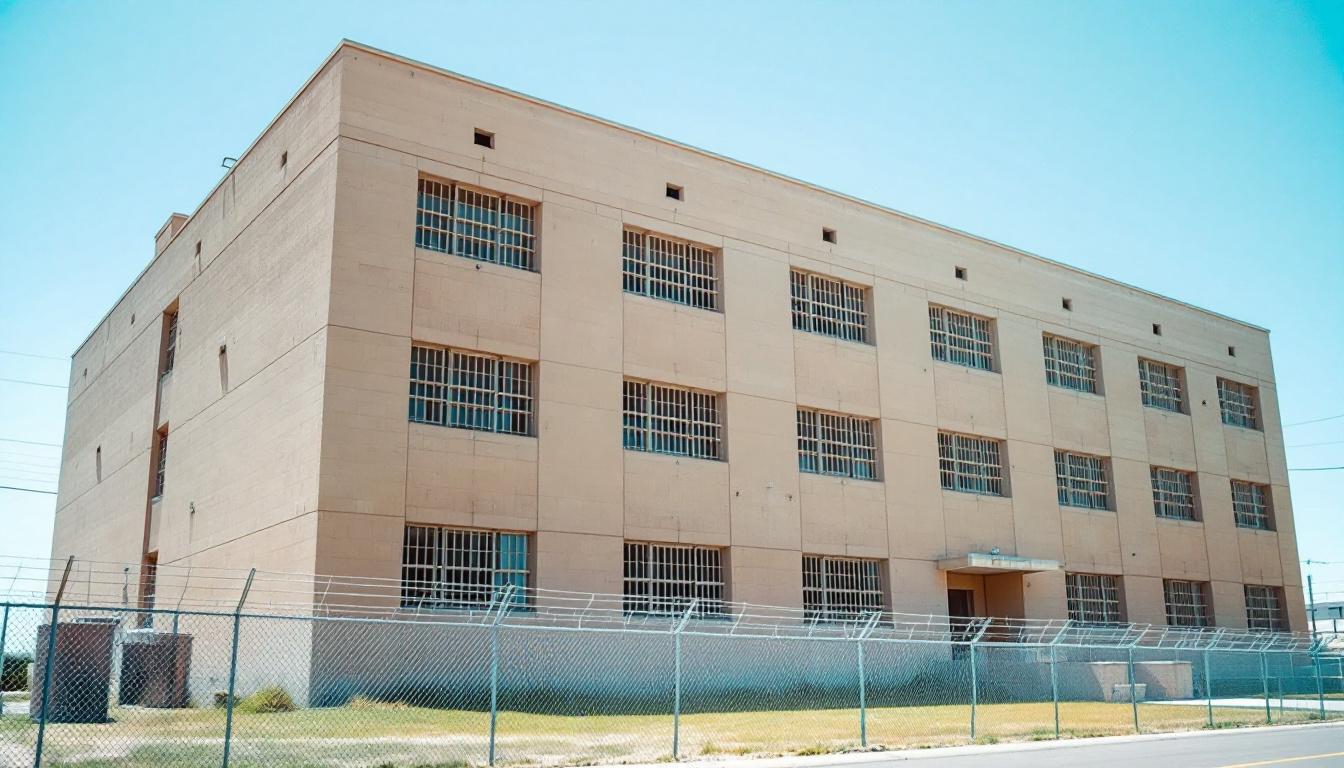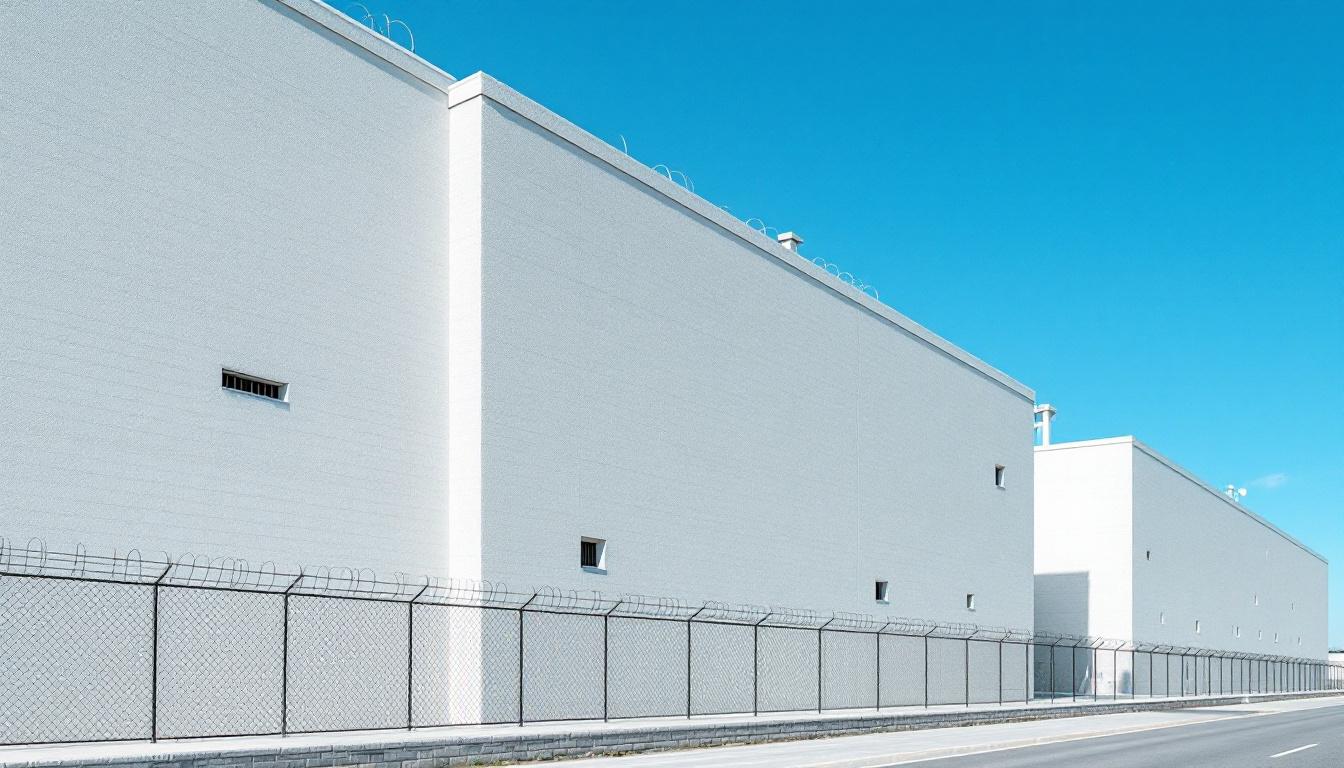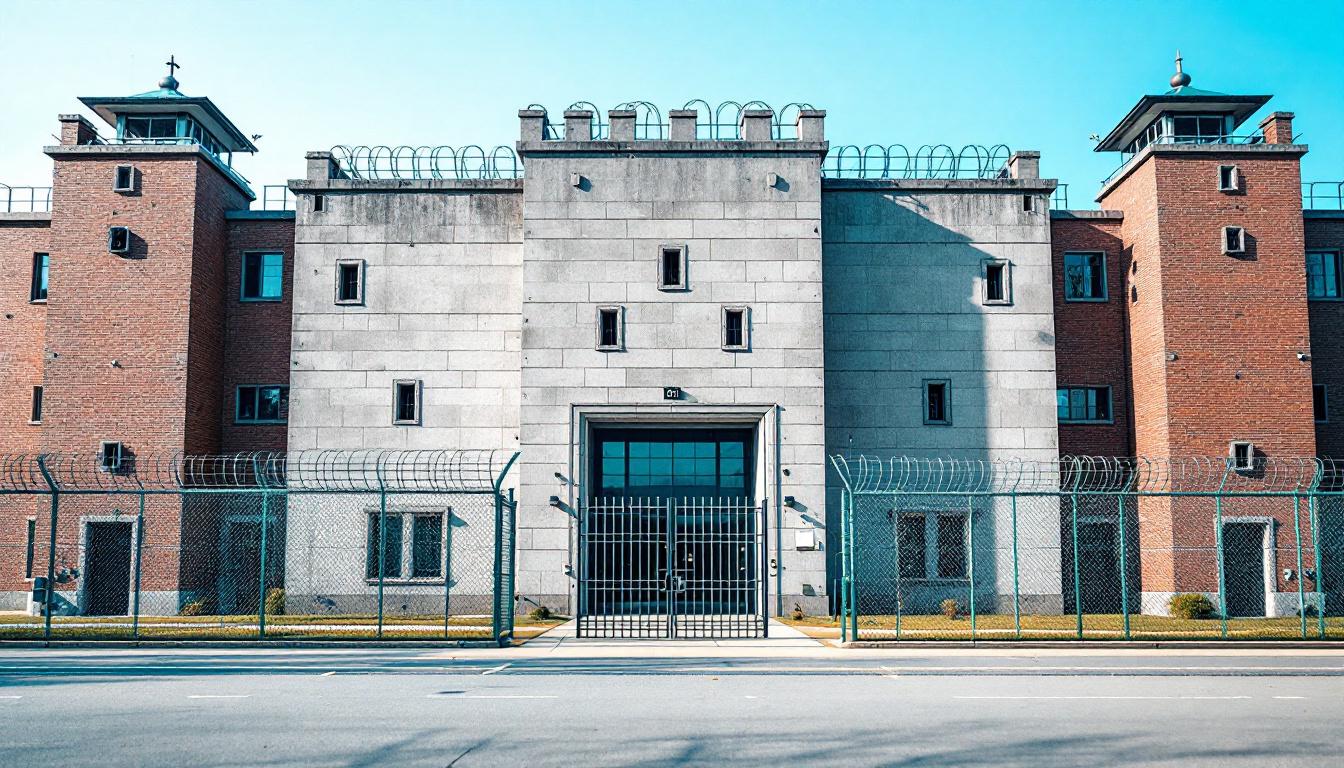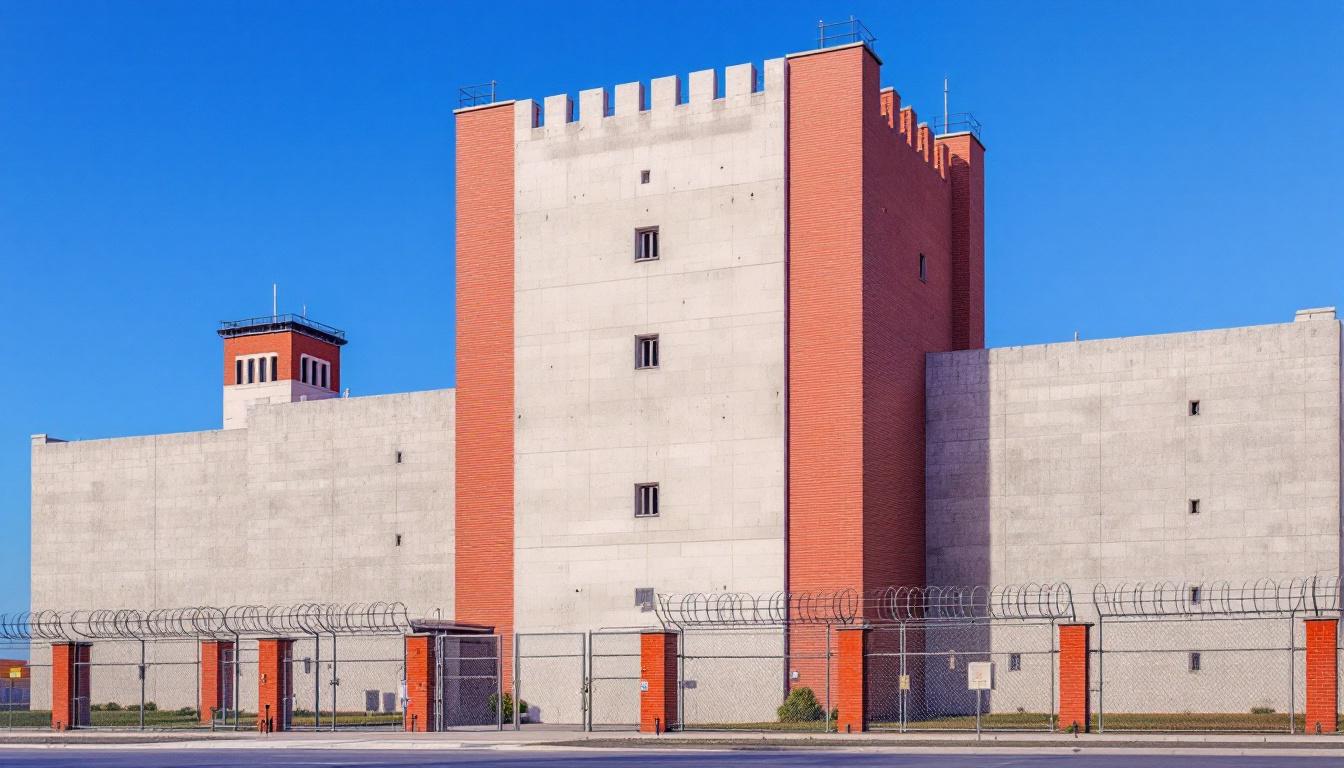
Quick Navigation
How to contact an inmate at Dauphin County Prison
This comprehensive guide will walk you through how to connect with an inmate at Dauphin County Prison. Follow the steps below to find an inmate and send letters and photos:
- Search for the inmate using our search tool below
- Create your account or log in to Penmate
- Write your message (up to 6,000 characters)
- Send instantly - inmates receive printed copies daily
Find an Inmate
Search for an inmate to start communicating today
Tip: You can search by first name, last name, or inmate ID number
To contact a person at Dauphin County Prison start by searching for the person on the official facility website. Perform a search by following these steps:
- Step 1: Enter their first name and last name into the search form and click "Search"
- Step 2: Locate their inmate record
- Step 3: Write down their Inmate ID and any housing information provided
Important! Be sure to enter the person's full name. Nicknames should not be used.
How to Send Messages to Inmates

You can use your phone or computer to send emails, letters, and photos to an inmate. Messages are sent electronically to inmate tablets or kiosks at the facility. If you would like to send a message, start by searching for an inmate at Dauphin County Prison.
Sending Photos and Postcards

A great way to send love and support to a loved one at Dauphin County Prison is to send photos and postcards. It only takes a few minutes to send photos from your phone and it makes a huge difference. You can also mail postcards with words of support and inspiration, or design your own postcard for special moments like birthdays and holidays.
Important! Be sure not to send any explicit photos or they may not be approved by the facility. You can also use a photo printing app like Penmate to make sure your photos are printed at the correct size (4x6 or 3x5) and are mailed according to the rules and regulations of Dauphin County Prison.
Frequently asked questions about Dauphin County Prison
-
How long does it take to deliver a message?
If you're sending an email message your letter is usually delivered within 24-48 hours. For messages sent via mail you should expect delivery within 3-7 days. All messages will need be approved by Dauphin County Prison.
-
How much does it cost to send a message to Dauphin County Prison?
You can send a message free using your phone or mail a message via USPS for the price of a $0.60 stamp and envelope. You can also purchase credits or e-stamps from services starting at $1.99.
-
What services can I use to contact an inmate at Dauphin County Prison?
Penmate
You can use Penmate to send letters and photos to an inmate from your phone. It's an easy way to stay in touch during your loved one's incarceration. Use the inmate locator to find an inmate's location and contact information, then you can send messages within a few minutes.
Securus messaging
Securus may be another option for communicating with an inmate at Dauphin County Prison. You can create a friends and family account and purchase credits to send messages. All messages will be reviewed and must be approved by the facility.
JPay
Some county jails and state prisons may support sending messages with JPay. You must register an account with the system, find your loved one, and purchase stamps to send messages. For some locations you can also attach photos.
Smart Jail Mail
You may also check if Smart Jail Mail is available at Dauphin County Prison. Smart Jail Mail is operated by Smart Communications and has contracted with some state and county jails. After purchasing credits, your messages and photos are sent to the facility, printed out, and then handed out to your loved one.
-
What is the mailing address of Dauphin County Prison?
Mailing address:
Dauphin County Prison
501 Mall Rd
Harrisburg, PA 17111
Phone: (717) 780-6800 -
What are the visiting hours at Dauphin County Prison?
Visiting hours at Dauphin County Prison vary by housing unit and security level. Generally, visits are scheduled on weekends and holidays, with some facilities offering weekday visits. Contact the facility directly at (717) 780-6800 or check their website for the current visiting schedule. Visits typically last 30-60 minutes and must be scheduled in advance.
-
What items are prohibited when sending mail to Dauphin County Prison?
Prohibited items typically include: cash, personal checks, stamps, stickers, glitter, glue, tape, staples, paperclips, polaroid photos, musical or blank greeting cards, hardcover books, magazines with staples, and any items containing metal or electronics. Only send letters on plain white paper with blue or black ink. Photos must be printed on regular photo paper (no Polaroids). Always check with Dauphin County Prison for their specific mail policies.
-
How do I send money to an inmate at Dauphin County Prison?
You can send money to an inmate at Dauphin County Prison through several methods: 1) Online using JPay, Access Corrections, or the facility's approved vendor, 2) Money orders mailed directly to the facility with the inmate's name and ID number, 3) Kiosks located in the facility lobby, or 4) Over the phone using a credit or debit card. Fees vary by method, typically ranging from $2.95 to $11.95 per transaction.
-
Can I schedule a video visit with an inmate at Dauphin County Prison?
Many facilities now offer video visitation as an alternative to in-person visits. At Dauphin County Prison, video visits may be available through services like Penmate, Securus Video Connect, GTL, or ICSolutions. Video visits typically cost $10-20 for 20-30 minutes and must be scheduled in advance. You'll need a computer or smartphone with a camera and reliable internet connection. Contact the facility for their specific video visitation policies and approved vendors.
-
What identification do I need to visit an inmate at Dauphin County Prison?
All visitors must present valid government-issued photo identification such as a driver's license, state ID, passport, or military ID. Minors must be accompanied by a parent or legal guardian who can provide the minor's birth certificate. Some facilities require visitors to be on the inmate's approved visitation list, which may require a background check. Contact Dauphin County Prison for specific ID requirements and visitor approval procedures.
-
How can I find out an inmate's release date?
To find an inmate's release date at Dauphin County Prison, you can: 1) Use the online inmate search tool if available, 2) Call the facility's records department, 3) Contact the inmate's case manager or counselor, or 4) Have the inmate provide this information during a call or visit. For privacy reasons, some facilities only release this information to immediate family members.
Facility Overview
Official Website
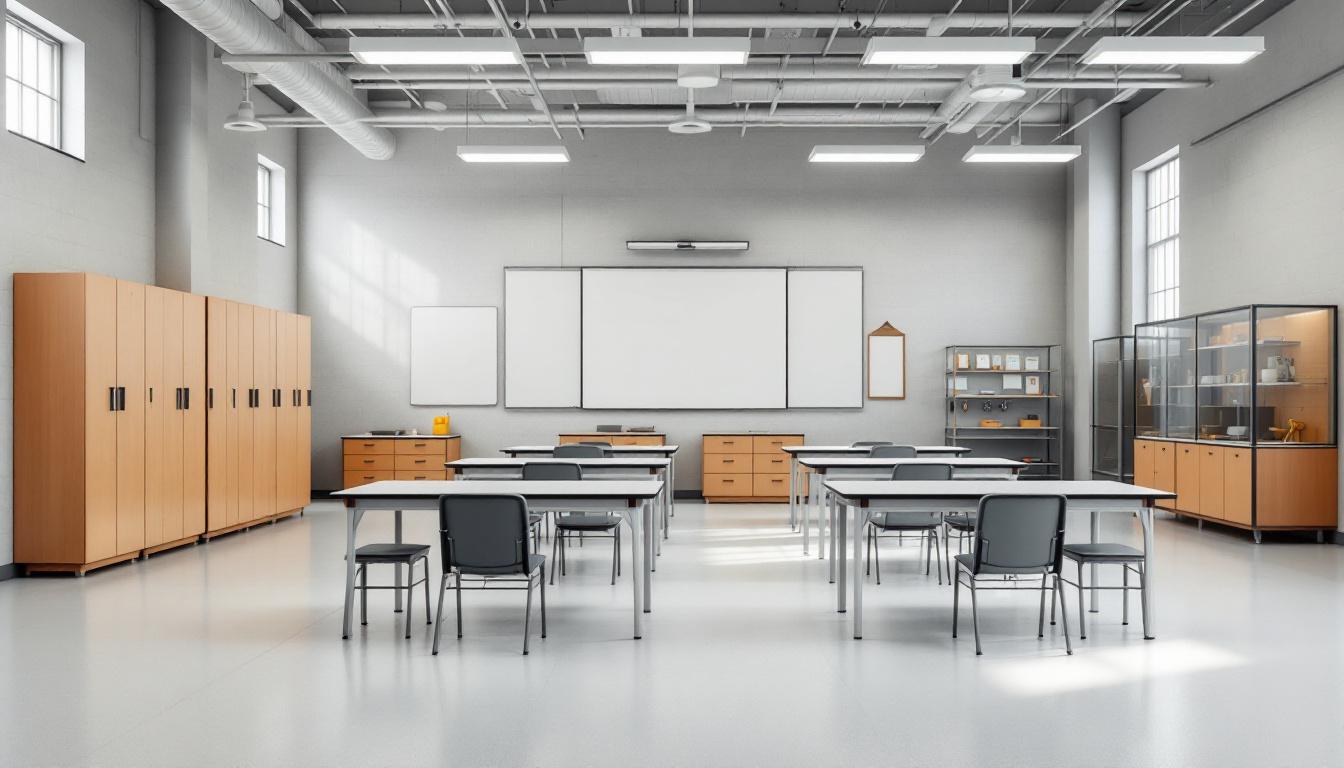
About Dauphin County Prison
Community safety and rehabilitation intersect at Dauphin County Prison, PA, where comprehensive programs support both public protection and individual transformation. Located in Phoenix, PA, this correctional facility serves as a vital component within Pennsylvania's broader correctional framework, typically housing individuals from the surrounding region while maintaining secure operations that prioritize both custody and constructive change. The facility generally emphasizes evidence-based approaches to corrections, often incorporating educational opportunities, vocational training, and behavioral programs designed to address the underlying factors that may contribute to criminal behavior.
Within Pennsylvania's correctional system, this Phoenix-based facility typically operates with multiple security levels to accommodate diverse inmate populations, from those requiring maximum security oversight to individuals preparing for community reintegration. PA correctional facility standards generally guide operations, with inmates services commonly including medical care, mental health support, library access, and various rehabilitative programming. The institution may offer substance abuse treatment, anger management courses, and educational advancement opportunities that align with state correctional objectives of reducing recidivism while maintaining public safety.
The facility's role extends beyond simple incarceration, often serving as a bridge between the justice system and community reintegration efforts throughout the mid-Atlantic region. Staff typically work to balance security requirements with rehabilitation goals, recognizing that successful reentry programs benefit both individuals and the broader Phoenix community. Through coordination with state prison standards and local resources, the facility generally maintains operations that support long-term public safety while addressing the complex needs of those in custody.
Programs & Services
Personal transformation through structured intervention forms the cornerstone of rehabilitative services at Dauphin County Prison, where inmates engage with comprehensive programming designed to address underlying behavioral patterns and develop essential life skills. The facility's approach emphasizes evidence-based practices that target both immediate needs and long-term reintegration goals, recognizing that meaningful change requires sustained engagement across multiple domains of personal development. Through carefully coordinated service delivery, participants typically access resources that address educational deficits, vocational preparation, and therapeutic intervention in an integrated manner.
Educational and vocational services may provide inmates with opportunities to advance their academic credentials while simultaneously developing marketable skills for post-release employment. Education programs often include basic literacy instruction, GED preparation, and continuing education opportunities that allow participants to progress at individualized paces. Furthermore, vocational education services typically encompass hands-on training in trades such as carpentry, where inmates learn both technical skills and workplace behaviors essential for successful employment. These programs often emphasize practical application of learned concepts, enabling participants to develop confidence and competency through structured practice and mentorship.
Support services and therapeutic interventions address the complex psychological and social factors that may contribute to criminal behavior patterns. Therapeutic communities typically offer structured environments where inmates engage in peer-supported recovery and behavioral modification processes, fostering accountability and mutual support among participants. Furthermore, specialized therapeutic services such as sex offender treatment may provide intensive, evidence-based interventions designed to reduce recidivism risk through cognitive-behavioral approaches and relapse prevention strategies. Arts and crafts programming often serves as both recreational outlet and therapeutic medium, allowing inmates to explore creative expression while developing patience, focus, and constructive coping mechanisms that support overall rehabilitation goals.
Daily Life & Visitation
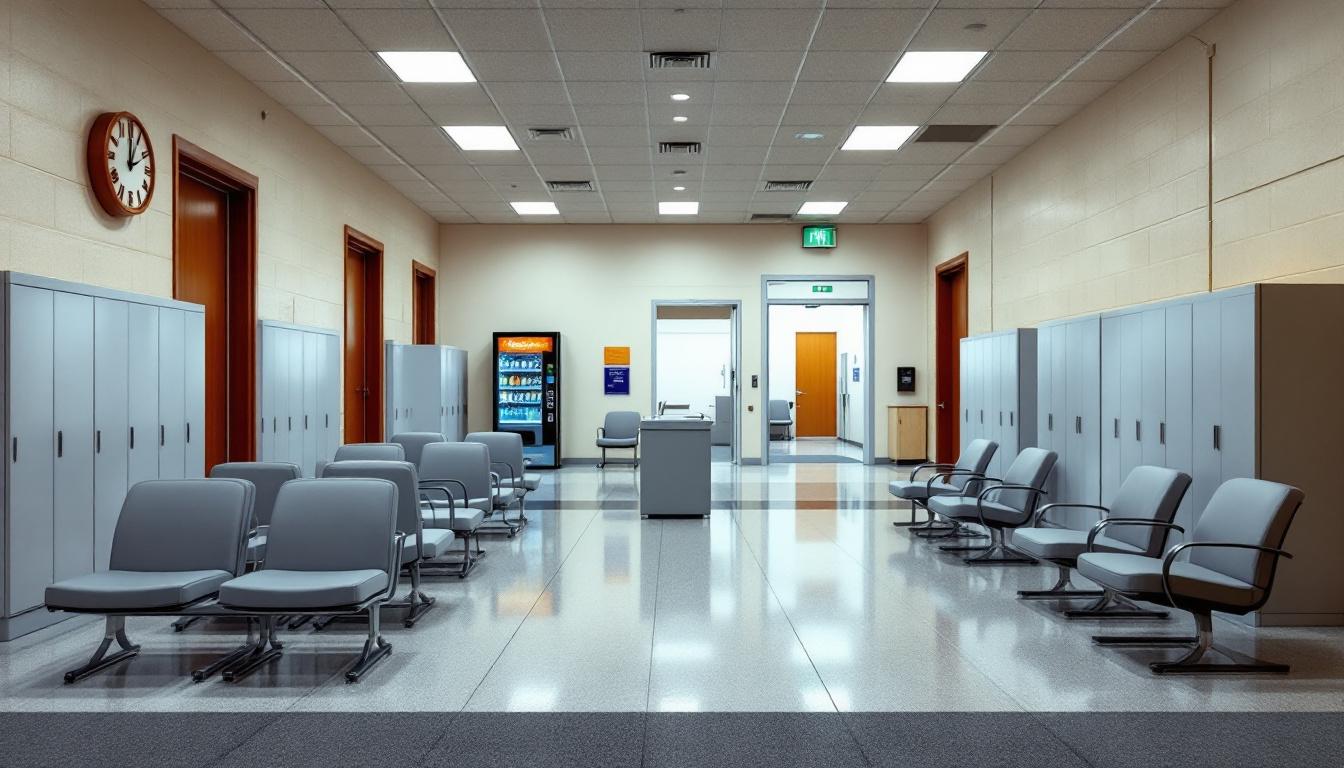
The concrete walls and steel doors of the housing units create a controlled environment where every movement follows established protocols and security procedures. Within this structured setting, inmates typically begin each day with morning count and meal service, followed by work assignments or programming activities that provide essential routine and purpose. Today's schedule generally includes educational classes, vocational training opportunities, or facility maintenance duties, with inmates consistently adapting to the regimented pace that governs institutional life.
Living accommodations usually consist of shared cells or dormitory-style housing units, where inmates learn to navigate limited personal space while maintaining respectful relationships with their cellmates or bunkmates. The dining hall serves meals at designated times throughout the day, with inmates typically gathering in supervised groups to share basic but nutritionally adequate food. Furthermore, personal property remains restricted to approved items that can be stored in small lockers or designated areas, while commissary purchases may offer limited comfort items and snacks to supplement daily provisions.
Recreation periods often provide opportunities for physical exercise in outdoor yards or indoor gymnasium spaces, allowing inmates to maintain their health and relieve stress through basketball, walking, or other approved activities. Although visitation schedules are typically limited to specific days and hours, these face-to-face meetings with family members serve as crucial emotional connections to the outside world. Communication options generally include monitored phone calls and written correspondence, helping inmates maintain relationships that support their eventual reintegration into the community while they serve their sentences.
Ready to Connect?
Start communicating with your loved one today
Search for an Inmate
